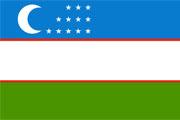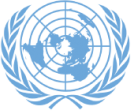Dear Mr. Chairman,
Distinguished Ministers, Heads of Delegations, Ladies and Gentlemen,
I would like to express our gratitude to the Republic of Kazakhstan for the initiative to hold these debates on Central Asia and Afghanistan at the UN Security Council level.
During his speech at the 72nd session of the UN General Assembly, President of the Republic of Uzbekistan His Excellency Shavkat Mirziyoyev stressed that stabilization of the situation in Afghanistan is an important condition for ensuring security in Central Asia and the world as a whole.
Proceeding from this, we are convinced that Afghanistan must remain at the center of the global agenda, while our common determination to promote peace should not weaken.
The choice in favor of the peace process remains the only solution to the ongoing confrontation for all intra-Afghan forces.
Time shows that a direct dialogue between the central government and the main domestic political forces must take place without preconditions, with the predominant role of the Afghans themselves and with the active involvement of the UN.
We believe that at present favorable opportunities are being shaped for a full-fledged "launch" of the process of peaceful settlement of the situation in this state.
Despite remaining divergences with regard to some aspects of this process, the international community is becoming increasingly aware of the fact that there is no alternative to the peace talks with the Taliban movement, support for the process of Afghanistan's integration into trade, economic and infrastructural ties with neighboring countries.
Obviously, peace in Afghanistan will bring tangible benefits to all countries of the vast Eurasian continent, promoting the construction of roads and railways, laying of pipelines, developing regional and trans-regional trade in all directions.
The following should be achieved for that:
Firstly – broad international consensus on the basic issues of establishment of peace and security in Afghanistan;
Secondly – national reconciliation through direct dialogue between the central government and main forces of the armed opposition.
To this end, the Republic of Uzbekistan and the Islamic Republic of Afghanistan are jointly initiating an International Ministerial Conference titled "Afghanistan – path to a peaceful future" in Tashkent in late March 2018.
Together with our partners in Afghanistan and some other countries, we have preliminarily studied this issue in detail and came to a conclusion that the Tashkent meeting would become a logical continuation of the second meeting of the "Kabul Process", scheduled for late February 2018, and consolidate the results achieved within the framework of the common international efforts at various levels.
Ultimately, holding a high-level forum in Tashkent should demonstrate that the "Afghan problem" will not remain in modern history as a precedent of the helplessness and indifference of the world community in countering the challenges and threats common to all mankind.
As you know, Uzbekistan has a successful experience in promoting the peace process in Afghanistan. In 1999, at our initiative, Tashkent hosted a meeting of "6 + 2" Contact Group at the level of deputy foreign ministers of Afghanistan’s neighboring countries, as well as Russia and the United States, with the participation of representatives of the warring parties, including the Taliban movement. Following the talks, the "Tashkent Declaration on the Basic Principles for the Peaceful Settlement of the Conflict in Afghanistan" was adopted.
At present, the Uzbek side is consistently making a real contribution to the development of regional cooperation, especially in terms of engaging Afghanistan in the system of trade, economic and infrastructural ties with the states of Central Asia.
We see the main goals of the multilateral meeting in Tashkent in agreeing the basic principles of the peaceful settlement in Afghanistan, elaborating a mechanism for "launching" negotiations between the government of Afghanistan and the armed opposition, as well as coordinating international joint actions to support this process.
On the outcomes of the conference, we hope to achieve the following results:
1) Adoption of the final document - the Tashkent Declaration, which will define the basic principles and conditions for a peaceful settlement, specify the obligations of the Afghan government and the armed opposition, as well as the international community in terms of “launching” the negotiation process and its support;
2) Formation of an international consensus on the promotion of a political settlement in Afghanistan;
3) Consolidation of the central and coordinating role of the Afghan side in the process of political settlement in Afghanistan;
4) Appeal of the participants of the Tashkent Conference to all groups of the armed opposition in Afghanistan to stop the violence and take part in the negotiation process with the Afghan government;
5) Reaffirmation by the forum’s participants of their international obligations on combating international terrorism in all its forms and manifestations.
To ensure the efficiency and productivity of the Tashkent Conference, and taking into account the views of our Afghan partners, we would like to invite the Secretary-General of the United Nations Mr. António Guterres, the UN Secretary General's Special Representative for Afghanistan, the High Representative of the European Union for Foreign Affairs and Security Policy, foreign ministers of Russia, China, the United States, India, Iran, Pakistan, Turkey, Saudi Arabia, as well as the countries of Central Asia to take part in its work.
The Uzbek side would be grateful for the support of the members of the UN Security Council of this joint initiative with Afghanistan.
We are confident that its implementation will demonstrate the determination of the world community to ensure peace and sustainable development in this country.
Thank you for your attention.


